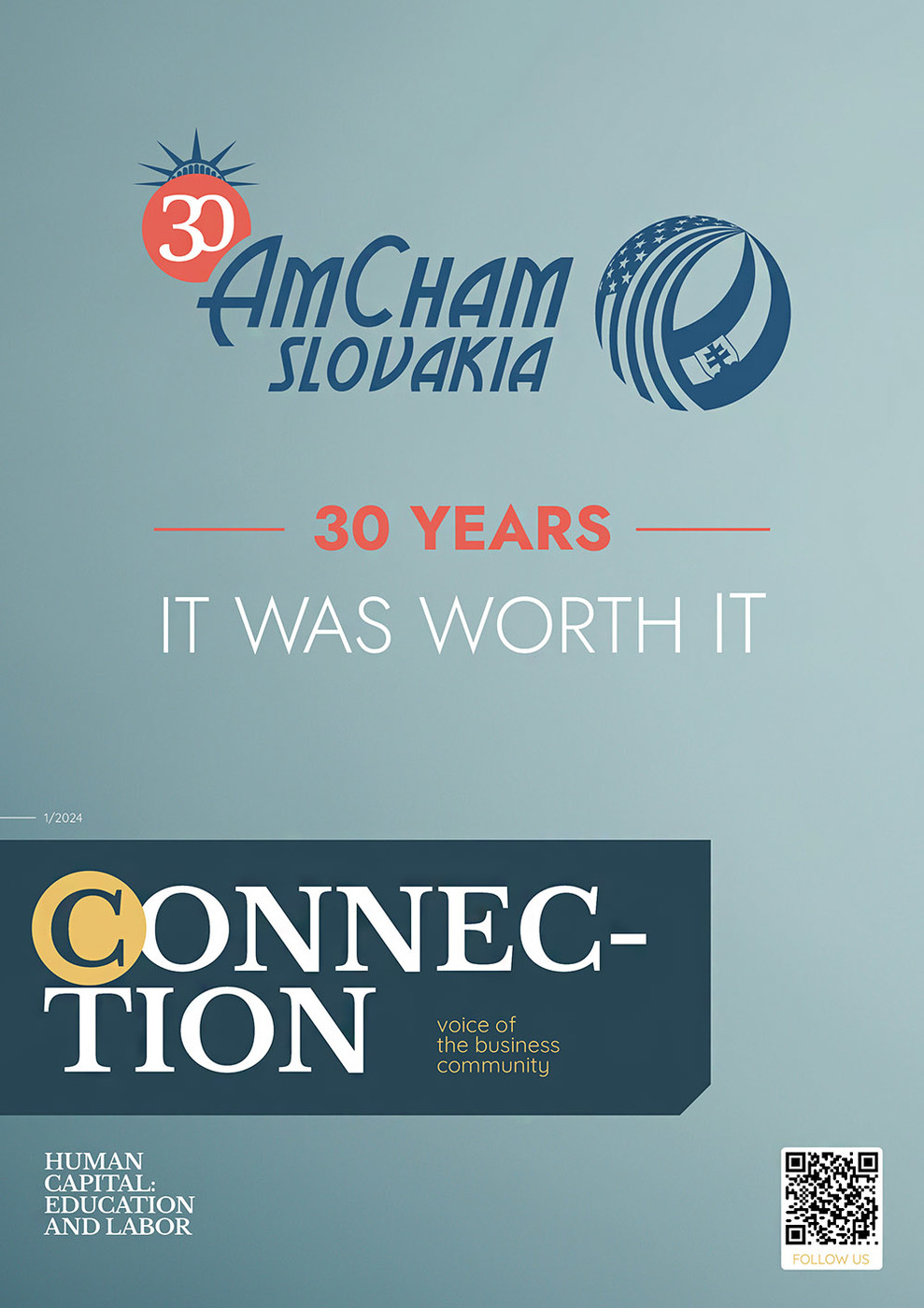
Download PDF
- Navigating HR transformations
- Redefining the work experience
- Embracing collaborative leadership
- (Un)adjusted gender pay gap
- Winning the best talents in Slovakia
- A human approach
- Let your reputation precede you
- Leading with empathy
- Can Slovakia attract talents?
- Driving innovation and growth in Košice
- Work and life connections
- Rethinking the food system
- Were you notified? What will you do?
- Navigating the future of work
Human Capital: Education and Labor
Navigating HR transformations
Over the last thirty years, human resources (HR) development in Slovakia has undergone a significant transformation. This transformation has been characterized by a shift from centrally managed labor relations to market mechanisms and a business culture, which has in turn been driven by social, economic, and technical changes, as well as international trends and globalization. As a result of these changes, a distinct field of HR has emerged, marked by a significant evolution from a traditional administrative position to a more strategic role.
Redefining the work experience
The concept of work is undergoing a significant transformation. As we step into a new era, it’s crucial to understand the dynamics shaping the future of work. This transformation is not just about where we work, but how and why we work, fundamentally altering our experiences and expectations.
Embracing collaborative leadership
A seismic shift is about to occur in the way organizations operate. Instead of days of rigid hierarchies and siloed departments there is a new approach of collaborative leadership supporting innovation, productivity, and employee engagement. The question is what to do to fit into the new era.
(Un)adjusted gender pay gap
“It will take a minimum of 50 years for OECD countries to reach gender pay parity.” 1 Similar statements related to the gender pay gap, are quickly becoming a hot topic in HR. We often discuss its implications, however we seldom define what we understand by it. This article defines two types of gender pay gap and their importance.
Winning the best talents in Slovakia
Slovakia is experiencing a critical shortage of skilled labor, leading to a competitive struggle among companies to acquire and retain top talents. There are various contributing factors, such as the aging of the population, significant migration of skilled individuals to Western countries offering higher salaries and growth opportunities. Additionally, the volatile political situation is forcing businesses to freeze or divert activities within the region.
A human approach
Not too long ago, we had to face the “Covid era” and the transition to the online reality. We managed as best we could; we set up hybrid regimes, changed priorities, adjusted the type of employee activities... We did it! But what has it done for us? Is this reality here to stay?
Let your reputation precede you
According to the 2023 Zipdo report, 75% of job seekers read up on the company’s reputation before applying. No wonder - the digital age is marked by information overload. Word of mouth which was once enough, does not suffice anymore. How can companies use this to their advantage?
Leading with empathy
Today’s world is changing and so is the way we work. Leadership always reflects the times and changes with them too. One of the fundamental changes is who is the bearer of the relationship between the employee and the employer.
Can Slovakia attract talents?
The global war for talent is underway, and most European countries are grappling with a shortage of both qualified and unqualified labor. The demand for talents transcends borders and persists consistently. The challenge lies in how to attract them, given the limitations imposed by location, country dynamics, economy, education, legislation, and mentality. The crucial question is whether Slovakia stands as an attractive labor market.
Driving innovation and growth in Košice
Business and shared services centers represent a very important and continually growing industry within the Slovak economy. The industry is evolving at a rapid pace as more and more services with higher added value are done in Slovakia. The recently launched Siemens Healthineers Shared Services Center in Košice is a great example and we talked to its Head Lucia Rosiarová about what motivated their decision and what challenges they face.
Work and life connections
Success comes at a price. Business leaders face difficult decisions regarding demands on their time on daily basis. The responsibility towards their families and their employees makes them carefully consider each minute of their day. We want to know how they like to spend their time out of work, what inspires them and motivates them.
Rethinking the food system
The food system has been successful in meeting its ambitions to provide safe, high quality and nutritious food. It nevertheless requires a major transformation to fully address the economic, social and environmental aspects need to achieve a sustainable and resilient future. So does the perception of how we produce, process, transport and consume our food.
Were you notified? What will you do?
In the workplace, ensuring the rights of whistleblowers is fraught with difficulty. While whistleblowing systems have been established across all industries, whistleblower hotlines are rarely used in practice. However, their use is increasing especially in times of crisis.
Navigating the future of work
Step into the year of 2024, in the disruption era. We find ourselves in a fast-paced realm of human resources where the year promises a landscape marked by transformative trends, shaping the way we approach work.

Follow us